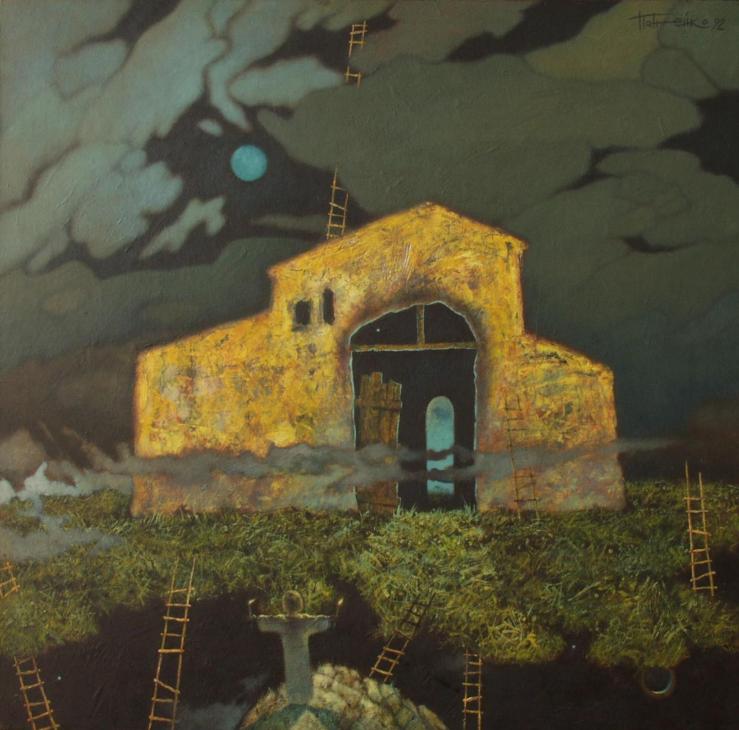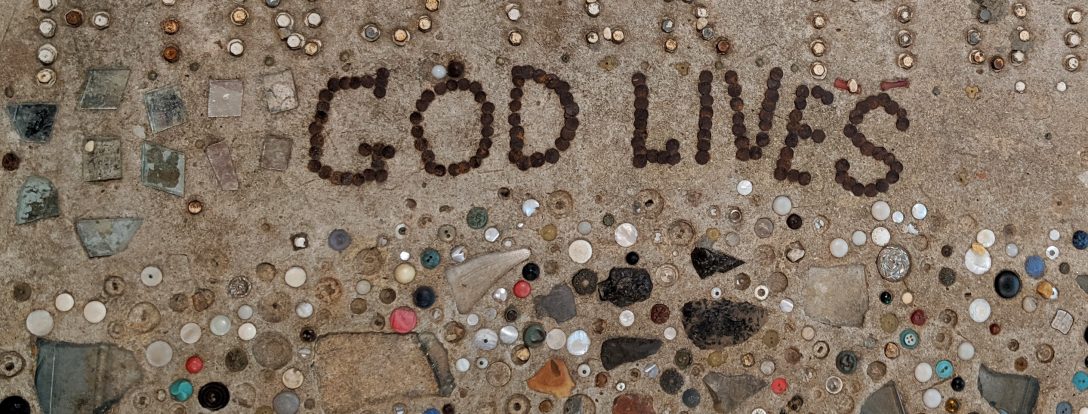I love listening to Malcolm Guite talk about spirituality, poetry, and the imagination; he’s a phenomenal teacher. In a December 2 podcast episode titled “Keeping Advent: Hope for a Dark World,” host Sally Clarkson interviews Guite on these topics as they relate to Advent. Before he launches into the meat of the talk, he describes the importance of the imagination in getting at truth:
God has given us all kinds of capacities with which to come to the truth, just like he’s given us different sense organs. When a bird is singing, your ears are telling you one part of what’s happening, and your eyes are telling you another. You’ve got both to get that whole experience. If you just had a silent film of the bird, you would be seeing something real, but you’d be missing something as well.
So I sometimes think that reason, the reason that makes for great science—analytic, helps us to think things through logically—that’s a very, very important test for truth, that’s a very important faculty, but it doesn’t get to everything. . . .
Imagination is the thing that shapes and puts things together. Shakespeare put this very beautifully. He said that imagination “apprehend[s] / more than cool reason ever comprehends” [A Midsummer Night’s Dream, 5.1.5–6]. He said we need to apprehend some joy before we can comprehend the bringer of the joy.
Samuel Taylor Coleridge believed that the imagination was part of our capacity to pay attention, and that the imagination would help us to remove, for a minute, the dull film of familiarity that we put over everything, and see it with freshness again. He also used a very beautiful analogy. He uses the example of a little insect, the horned fly, and how, when it’s still in the squashy pupa phase and it’s going to metamorphose, it makes a cocoon—a kind of carapace. He says that when that little fly does that, it leaves room in its involucrum, he calls it—what a wonderful word—for antennae yet to come [Biographia Literaria, vol. 1, chap. 12]. He says that’s what the imagination does.
Sometimes the artistic imagination, the poetic imagination, comes to us with something marvelous. And what that marvelous thing is doing is it’s holding open a shape that the rest of our mind is going to grow into, so that the antennae, the real reasoning and figuring it all out, can come a bit later, but the story [or poem or image] gives us something.

In this interview Guite also reads one of his Advent sonnets, the last in a series of seven he wrote that were inspired by the traditional liturgical chants known as the O Antiphons. Titled “O Emmanuel,” the poem is a prayer for God to come among us again, in all his myriad attributes, and to rebirth not only the hearts of humanity but the whole earth.
“O Emmanuel” by Malcolm Guite
O come, O come, and be our God-with-us,
O long-sought With-ness for a world without,
O secret seed, O hidden spring of light.
Come to us Wisdom, come unspoken Name,
Come Root, and Key, and King, and holy Flame.
O quickened little wick so tightly curled,
Be folded with us into time and place,
Unfold for us the mystery of grace
And make a womb of all this wounded world.
O heart of heaven beating in the earth,
O tiny hope within our hopelessness,
Come to be born, to bear us to our birth,
To touch a dying world with new-made hands,
And make these rags of time our swaddling bands.
This and other poems, by Guite and others, can be found in the book Waiting on the Word: A Poem a Day for Advent, Christmas, and Epiphany. You can read more about “O Emmanuel” on Guite’s blog, which contains a wealth of writings. For additional books by Guite, see his Amazon page.

Love Malcolm Guite and looking forward to listening to the podcast. Also: THAT PAINTING!
LikeLike
[…] Last September The Cultivating Project interviewed Malcolm Guite [previously] on his latest poetry collection After Prayer, the poet-priest George Herbert, the life of a […]
LikeLike
[…] See Malcolm Guite on the imagination and God-with-us – Art & Theology (artandtheology.org) […]
LikeLike
[…] appears in Waiting on the Word: A Poem a Day for Advent, Christmas and Epiphany. (I shared the poem here, and another compelling Advent musical composition by Stamper […]
LikeLike